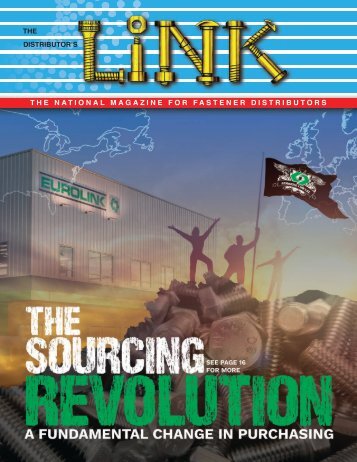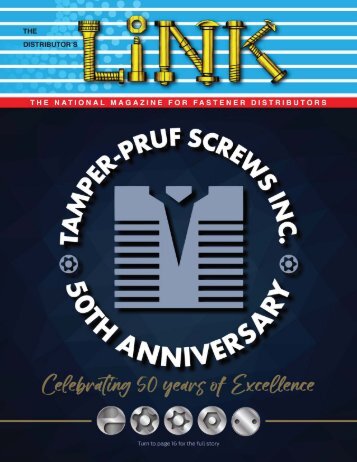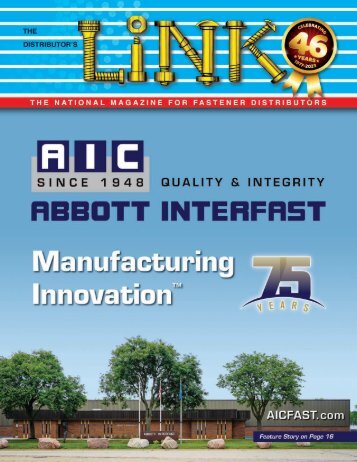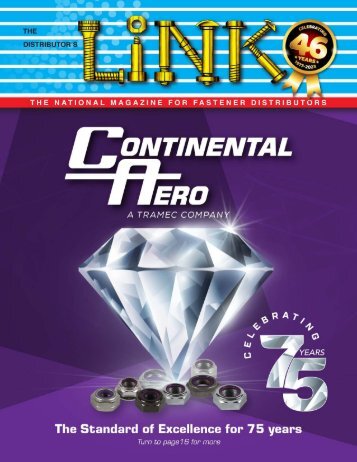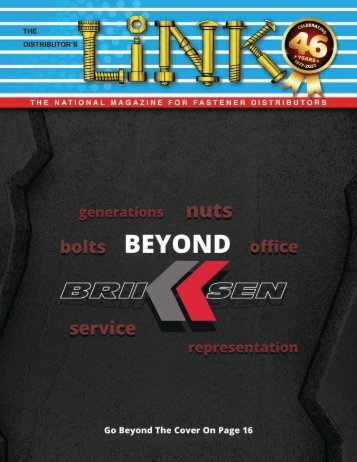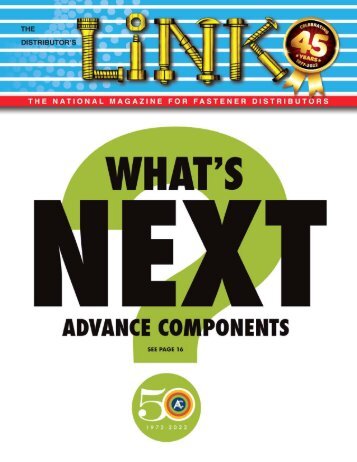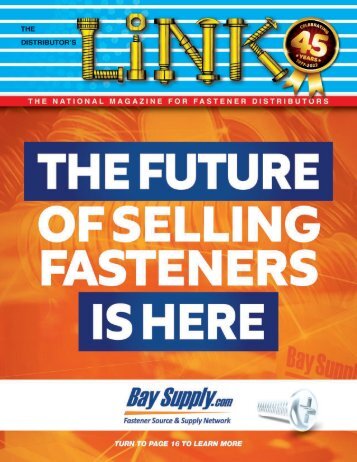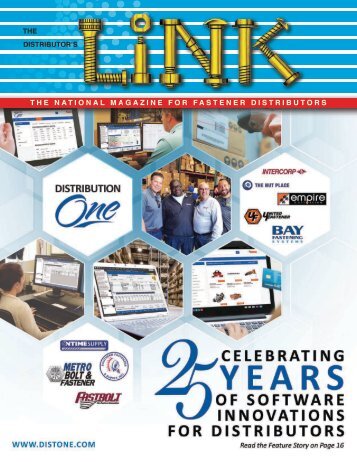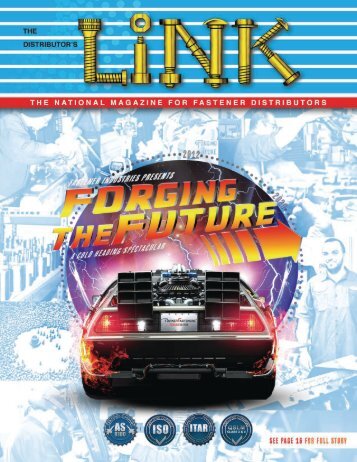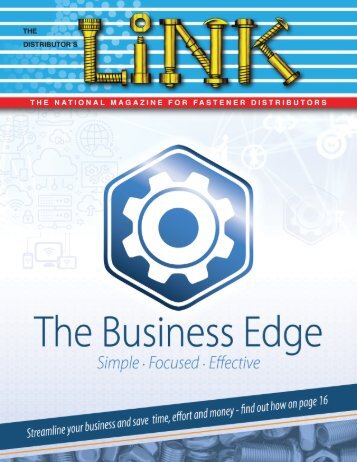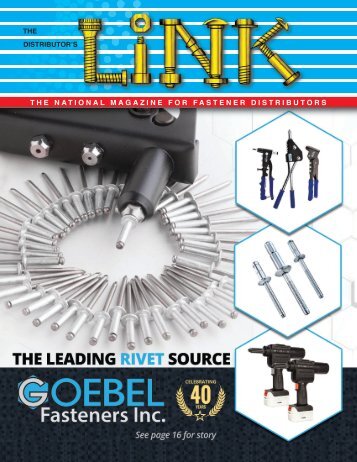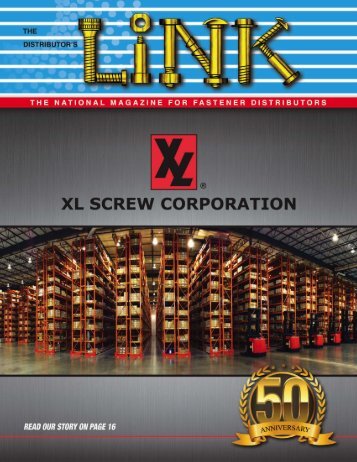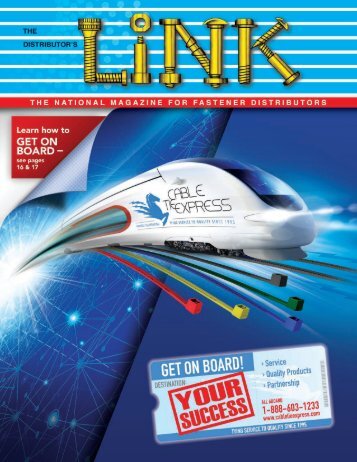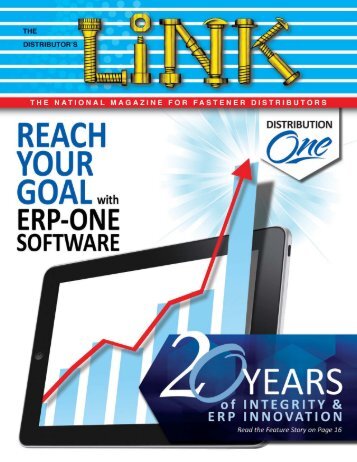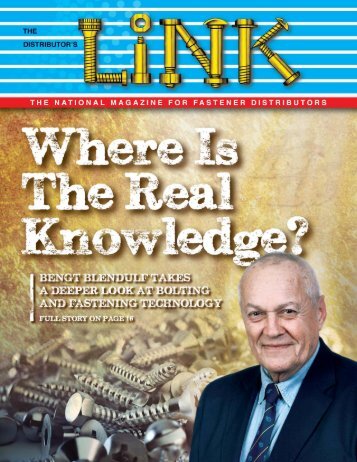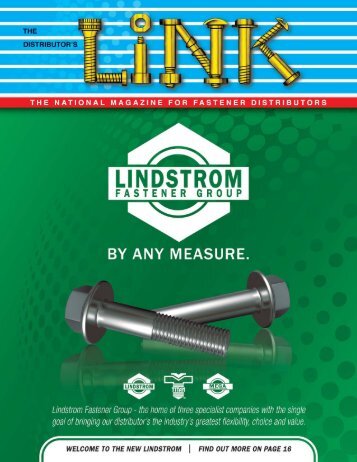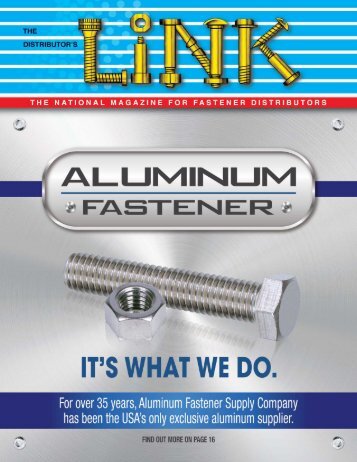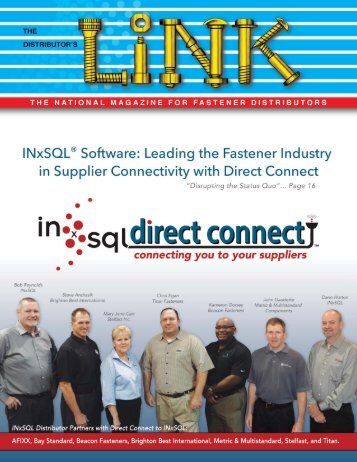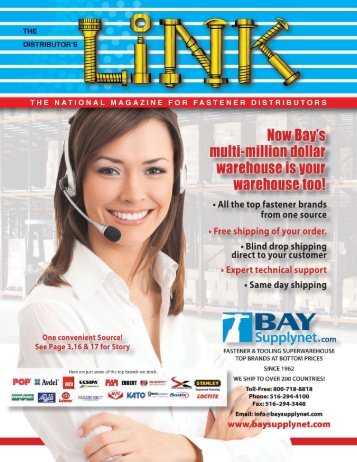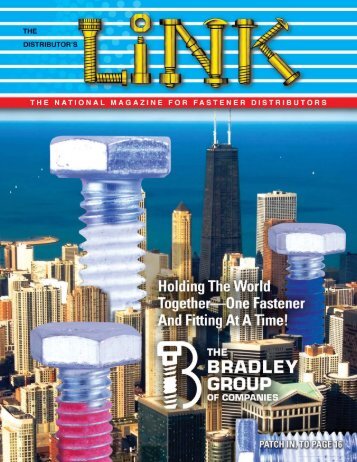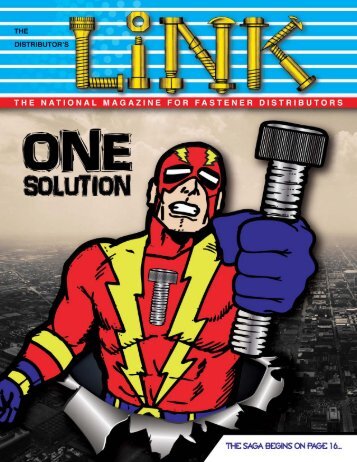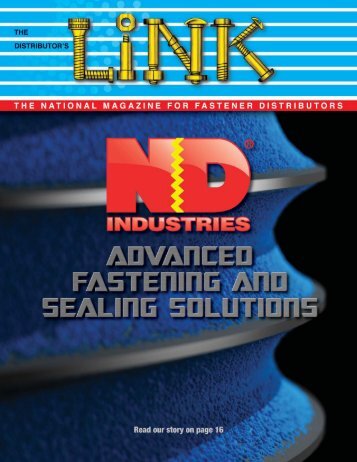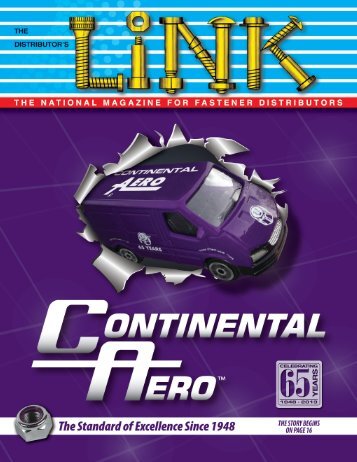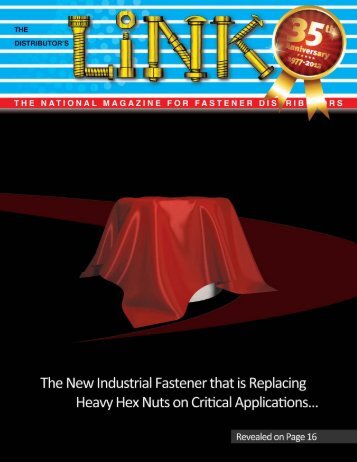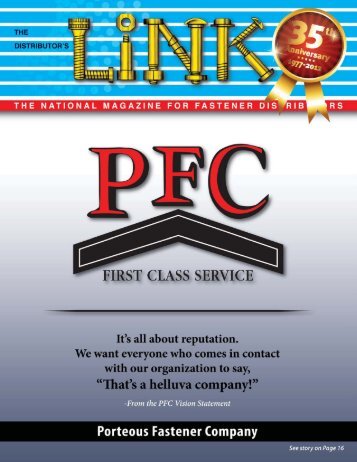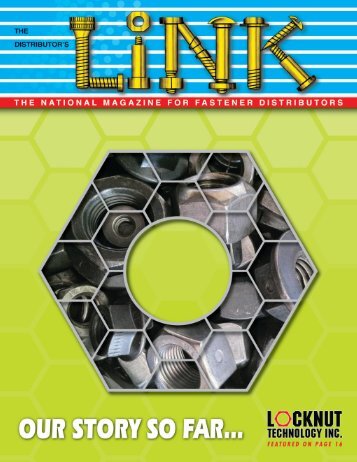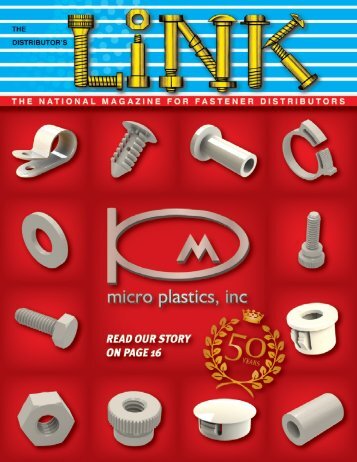SPRING 2022
40 THE DISTRIBUTOR’S
40 THE DISTRIBUTOR’S LINK Jim Truesdell James Truesdell is President of Brauer Supply Company, a distributor of specialty fasteners, insulation, air filtration, and air conditioning with headquarters in St. Louis. Mr. Truesdell is adjunct professor at Saint Louis University and Webster University. An attorney and frequently published writer, he is the author of “Total Quality Management: Reports From the Front Lines”. BIG TECH AND THE PURCHASING PROCESS Along with all the benefits which technology has brought to Americans, one of the most visible is the ability to secure products quickly on line and see them appear on your doorstep or loading dock in the next couple of days. Consumers are able to secure those “hard to find” items now within minutes of beginning an on-line search. It almost seems like magic. But---as this new purchasing channel becomes widespread, how do we insure that it won’t become a process totally controlled by a few powerful companies who monopolize the channel and squelch any competitor who raises his or her head? How do we make sure that competition survives to keep market pressure on all parties to uphold service levels and maintain competitive prices? This may have particular importance for trade wholesalers. This concern is being addressed by a bipartisan congressional group led by Senator Amy Klobucher (D) of Minnesota and Senator Tom Scott (R) of Arkansas who have recently introduced the Platform Competition and Opportunity Act, designed to make major tech companies demonstrate that proposed mergers and acquisitions are not anti-competitive. A similar bill from Democratic Representative Hakeem Jeffries of New York will be voted on in the near future. As can be expected, there is a lot of concern being raised by people and companies on both sides of the issue. CONTRIBUTOR ARTICLE Proponents of the legislation point to threats from domination of platforms by a few large companies that could include refusal to deal with rivals, restrictive contracting, predatory pricing and excessive barriers to entry in the marketplace. Significant opposition exists from those who fear that this and other related measure are too broad, could serve to block innovation, or might hamper consumers use of on-line services. The Klobucher-Cotton bill would expand the authority of the Justice Department and the Federal Trade Commission to intervene and stop acquisitions by large tech companies which would increase their monopoly power. The burden of proof would be shifted to the acquiring companies to establish that their actions would not be anticompetitive. Klobucher characterized this as a modernizing of our anti-trust laws to deal with our new digital economy. Jeffrie’s House Bill would target tech companies with market capitalizations of over 0 billion dollars. Last June a House Anti-Trust panel approved a group of five bills to place more control on tech giant companies. Provisions of these included things like keeping tech user data portable, preventing platform owners from selling their own products therein, and not allowing preferences to be given to selected sellers. The panel narrowly approved these on a bipartisan vote after spirited debate. CONTINUED ON PAGE 118
- Page 6 and 7: in the Spring 2022 issue of 6 DISTR
- Page 8: 6 THE DISTRIBUTOR’S LINK ND Indus
- Page 12: 10 THE DISTRIBUTOR’S LINK Rob LaP
- Page 16: 14 THE DISTRIBUTOR’S LINK Joe Dys
- Page 28: 26 THE DISTRIBUTOR’S LINK SEE YOU
- Page 32: 30 THE DISTRIBUTOR’S LINK Bruno M
- Page 35 and 36: THE DISTRIBUTOR’S LINK 33 AFC Ind
- Page 38 and 39: 36 THE DISTRIBUTOR’S LINK Robert
- Page 40: 38 THE DISTRIBUTOR’S LINK 2152 Ma
- Page 47 and 48: THE DISTRIBUTOR’S LINK 45 UNICORP
- Page 50: 48 THE DISTRIBUTOR’S LINK Guy Ave
- Page 54 and 55: 52 THE DISTRIBUTOR’S LINK GLOBALF
- Page 56: 54 THE DISTRIBUTOR’S LINK SPIROL
- Page 60 and 61: 58 THE DISTRIBUTOR’S LINK Joe Sas
- Page 62: 60 THE DISTRIBUTOR’S LINK Nelson
- Page 66 and 67: 64 THE DISTRIBUTOR’S LINK VOLT IN
- Page 68 and 69: 66 THE DISTRIBUTOR’S LINK MACLEAN
- Page 70 and 71: 68 THE DISTRIBUTOR’S LINK AMERICA
- Page 72: 70 THE DISTRIBUTOR’S LINK Roman B
- Page 76 and 77: 74 THE DISTRIBUTOR’S LINK Anthony
- Page 78: 76 THE DISTRIBUTOR’S LINK INDUSTR
- Page 81 and 82: 3Q INC. THE DISTRIBUTOR’S LINK 79
- Page 84 and 85: 82 THE DISTRIBUTOR’S LINK QUALITY
- Page 86: 84 THE DISTRIBUTOR’S LINK FASCOMP
- Page 89 and 90: AFC Industries has acquired Tigard,
- Page 91 and 92:
THE DISTRIBUTOR’S LINK 89
- Page 96 and 97:
94 THE DISTRIBUTOR’S LINK MID-WES
- Page 98 and 99:
96 THE DISTRIBUTOR’S LINK LAURENC
- Page 100:
98 THE DISTRIBUTOR’S LINK ROB LaP
- Page 103 and 104:
THE DISTRIBUTOR’S LINK 101
- Page 105 and 106:
THE DISTRIBUTOR’S LINK 103 Euroli
- Page 108 and 109:
106 THE DISTRIBUTOR’S LINK FASTEN
- Page 110 and 111:
108 THE DISTRIBUTOR’S LINK LARRY
- Page 112:
110 THE DISTRIBUTOR’S LINK BRUNO
- Page 115 and 116:
THE DISTRIBUTOR’S LINK 113
- Page 117 and 118:
THE DISTRIBUTOR’S LINK 115 JO MOR
- Page 120 and 121:
118 THE DISTRIBUTOR’S LINK JIM TR
- Page 122 and 123:
120 THE DISTRIBUTOR’S LINK COMPUT
- Page 124 and 125:
122 THE DISTRIBUTOR’S LINK IFE TH
- Page 126 and 127:
124 THE DISTRIBUTOR’S LINK GUY AV
- Page 128 and 129:
126 THE DISTRIBUTOR’S LINK GLOBAL
- Page 130:
128 THE DISTRIBUTOR’S LINK SPIROL
- Page 133:
MID-WEST FASTENER ASSOCIATION HOLID
- Page 137 and 138:
fastenerlinks BRINGING YOU THE FAST
- Page 139 and 140:
fastenerlinks BRINGING YOU THE FAST
- Page 141 and 142:
THE DISTRIBUTOR’S LINK 139 J.W. W
- Page 143 and 144:
THE DISTRIBUTOR’S LINK 141 Birmin
- Page 145 and 146:
THE DISTRIBUTOR’S LINK 143 NELSON
- Page 147 and 148:
MID-WEST FASTENER ASSOCIATION HOLID
- Page 149 and 150:
THE DISTRIBUTOR’S LINK 147 METROP
- Page 151 and 152:
THE DISTRIBUTOR’S LINK 149
- Page 153 and 154:
THE DISTRIBUTOR’S LINK 151 QUALIT
- Page 155 and 156:
THE DISTRIBUTOR’S LINK 153 Smalle
- Page 157 and 158:
THE DISTRIBUTOR’S LINK 155 Lindfa
- Page 159 and 160:
MID-ATLANTIC FASTENER DISTRIBUTORS
- Page 161 and 162:
THE DISTRIBUTOR’S LINK 159 ROB La
- Page 164 and 165:
162 THE DISTRIBUTOR’S LINK LARRY
- Page 166:
164 THE DISTRIBUTOR’S LINK BRUNO
- Page 169 and 170:
THE DISTRIBUTOR’S LINK 167 Distri
- Page 172 and 173:
170 THE DISTRIBUTOR’S LINK NORTH
- Page 174 and 175:
172 THE DISTRIBUTOR’S LINK GUY AV
- Page 177 and 178:
174 THE DISTRIBUTOR’S LINK AMERIC
- Page 179 and 180:
176 THE DISTRIBUTOR’S LINK SPIROL
- Page 181 and 182:
PAC-WEST FASTENER ASSSOCIATON AFTER
- Page 183:
180 THE DISTRIBUTOR’S LINK LAUREN
- Page 186 and 187:
THE DISTRIBUTOR’S LINK 183
- Page 188 and 189:
THE DISTRIBUTOR’S LINK 185 NORTH
- Page 191:
advertisers index C COMPONENT PACKA
- Page 195:
advertisers index P PIVOT POINT 49
Inappropriate
Loading...
Mail this publication
Loading...
Embed
Loading...
|
SHARE A PAGE FROM THIS MAGAZINE OPTION 1: Click on the share tab above, or OPTION 2: Click on the icon (far right of toolbar) and then click on the icon (far right of toolbar) and then click on the  icon (top right of the page). icon (top right of the page).
|
View Archives
Copyright © Distributor's Link, Inc. All Rights Reserved | Privacy Policy






